Jad P. AbiMansour MD, Manik Aggarwal MBBS, Douglas A. Simonetto, MD, Andrew C. Storm, MD, Elizabeth Rajan MD, FASGE
Developmental Endoscopy Unit, Division of Gastroenterology and Hepatology, Mayo Clinic, Rochester, MN, USA
Gastroenterology, and particularly gastrointestinal endoscopy, is a field shaped by physician innovators. Trainees are especially well-suited to be physician innovators given their ability to understand systemic gaps and challenges without influences rooted in historical practice. The ability to innovate is a combination of both nature and nurture that can be developed through formalized training.1 Notably, 68% of medical trainees do not see themselves as innovators, largely driven by the notion that innovation is an intrinsic quality.2
As such, incorporating a formal innovation and device development curriculum should be approached in a methodical and intentional fashion to enhance, not replace, other established components of training.3 At our institution, we established a 2 to 4 week innovation elective that provides minimal didactics, and is largely focused on device regulatory approval pathways, reviewing successful case studies, writing a disclosure, and creating a pitch that includes a problem statement, value proposition, market assessment and competitive analysis. This dedicated time allows for creative ‘blue sky’ thinking to identify gaps in clinical and endoscopic practice and training curriculum, and then to identify a potential solution. If the solution is an endoscopic device, then the idea is ‘pitched’ to expert faculty. When feasible, a prototype is fabricated and functionality tested in ex-vivo or large animal survival models. The core emphasis is to teach fellows early in their careers to think differently, identify unmet clinical needs, and be empowered to change current clinical paradigms.
Success in innovation requires support from the gastroenterology fellowship program director and divisional leaders to encourage innovative pursuits of trainees and provide necessary resources and funding. Partnership with our Office of Technology Transfer provides critical guidance on protecting intellectual property, and licensing technology to industry partners.
Ultimately, the goal of innovation training during fellowship is to ensure the patient is the central focus and motivation for any innovation, to recognize not every idea is patentable but every idea is valuable if it improves the practice, and to empower trainees with the confidence and skillset to critically solve problems that will inevitably be encountered during their career.
References
- Rajan, E. Women in Innovation in Endoscopy: Pitfalls and Tips for Success. Techniques and Innovations in Gastrointestinal Endoscopy, 2021. Volume 23, Issue 3, 268 - 271
- Boms, O., et al., Integrating innovation as a core objective in medical training. Nat Biotechnol, 2022. 40(3): p. 434-437.
- AbiMansour, Jad P. et al. Training the Innovative Gastroenterologist of the Future: Establishing a Formal Curriculum During Gastroenterology Fellowship. Gastroenterology, Volume 166, Issue 1, 16 - 20.e1
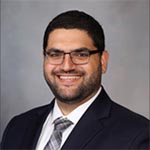 | Dr. Jad AbiMansour is an Assistant Professor of Medicine at Mayo Clinic in Rochester, MN. He is an advanced endoscopist and member of the specialty pancreas clinic and developmental endoscopy unit. His clinical and academic interests include pancreaticobiliary endoscopy, ablation of pancreatic lesions, and endoscopic device innovation. |
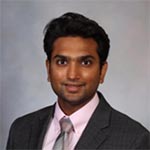 | Dr. Manik Aggarwal is a senior gastroenterology fellow who will be pursuing advanced endoscopy fellowship at Mayo Clinic in Rochester, MN. |
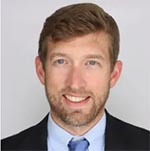 | Dr. Andrew Storm is director of endoscopy at Mayo Clinic in Rochester, MN with research focus on device development and preclinical testing of new procedures in flexible endoscopy. |
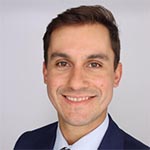 | Dr. Doug Simonetto is an Associate Professor of Medicine and he serves as the Director of the Gastroenterology and Hepatology Fellowship program at Mayo Clinic in Rochester. |
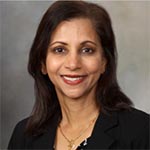 | Dr. Elizabeth Rajan is a Professor of Medicine at Mayo Clinic, Rochester, MN. She is an advanced endoscopist and director of the developmental endoscopy unit. Her special interests are innovation in endoscopy, capsule endoscopy and endoscopic ultrasound. |